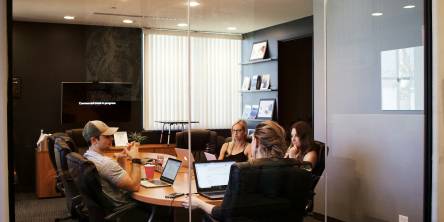Component Auditors Considerations as per ISA 600

As businesses grow and evolve, they often face the need for audits to ensure compliance and assess the effectiveness of their internal controls. In many cases, component auditors are called upon to help with these audits, especially when a company has multiple subsidiaries or business units. Component auditors are responsible for evaluating the financial statements of a specific component of a larger entity, such as a subsidiary or business unit, and providing an opinion on the accuracy of those statements. When conducting component audits, there are several considerations that component auditors should keep in mind.
First, component auditors as per EntreprenurialHub need to have a clear understanding of the entity's financial reporting framework. This includes understanding the applicable accounting standards and the company's internal policies and procedures for financial reporting. Component auditors should also be familiar with any relevant regulatory requirements that apply to the entity.
Second, component auditors need to assess the risks associated with the audited component. This includes identifying any areas where the component may be at risk of fraud or other types of financial misstatements. Component auditors should also evaluate the effectiveness of the component's internal controls and assess the risk of material misstatement in the financial statements.
Third, component auditors should be aware of any intercompany transactions or balances that may impact the component's financial statements. This includes understanding any transactions or balances with other components of the entity, as well as any transactions or balances with third parties that may impact the component's financial statements.
Fourth, component auditors should communicate effectively with the other auditors involved in the audit. This includes coordinating the timing of audit work, sharing relevant information, and discussing any issues or concerns that arise during the audit. Component auditors should also be prepared to respond to any requests for information or clarification from the other auditors.
Finally, component auditors should document their work thoroughly. This includes documenting the procedures performed, the conclusions reached, and any issues or concerns identified during the audit. Documentation should be clear, concise, and sufficient to support the auditor's opinion.
Component auditors play a critical role in helping to ensure the accuracy and integrity of financial statements for subsidiaries and business units within larger entities. When conducting component audits, auditors should keep in mind the importance of understanding the entity's financial reporting framework, assessing risks, identifying intercompany transactions, communicating effectively with other auditors, and documenting their work thoroughly. By keeping these considerations in mind, component auditors can help to ensure that their audits are effective and provide valuable insights to the larger audit team.
In addition to the considerations mentioned above, there are several other important factors that component auditors should keep in mind when conducting audits. One of these factors is the need to remain independent and objective throughout the audit process. Component auditors should avoid any conflicts of interest and ensure that their opinions are based solely on the evidence gathered during the audit.
Another important consideration for component auditors is the need to stay up-to-date with changes in accounting standards and regulatory requirements. Auditing standards and regulations are constantly evolving, and component auditors need to be aware of any changes that may impact their audits. This includes changes in auditing standards, as well as changes in tax laws or other regulations that may impact the component's financial statements.
It is also important for component auditors to maintain effective communication with the component's management team. This includes discussing any issues or concerns that arise during the audit, as well as providing feedback on the effectiveness of the component's internal controls. By maintaining open and honest communication, component auditors can help to ensure that any issues or concerns are addressed in a timely and effective manner.
Finally, component auditors should always be mindful of the need to maintain confidentiality and protect sensitive information. This includes ensuring that any data or information gathered during the audit is kept secure and only shared with authorized parties. By maintaining confidentiality and protecting sensitive information, component auditors can help to ensure the integrity of the audit process and maintain the trust of their clients.
In summary, component auditors play a critical role in ensuring the accuracy and integrity of financial statements for subsidiaries and business units within larger entities. By keeping these additional considerations in mind, component auditors can help to ensure that their audits are effective and objective and provide valuable insights to the larger audit team.
Similar Articles
In the world of civil construction, a small mistake can have a big impact. Whether it’s delays, budget overruns, or safety issues, the costs of poor staffing are often overlooked until it’s too late.
Learn how to choose winning products for your dropshipping website with smart research, trend analysis, and testing tips for better profits.
In today’s fast-growing lighting industry, LED strip lights have become one of the most popular solutions for modern lighting design.
Discover how partnering with a software developer recruitment agency can prevent burnout in development teams and enhance project sustainability.
Learn how corporate event catering boosts image, fosters networking, reduces stress, and creates memorable experiences at professional gatherings.
Discover essential commercial HVAC maintenance strategies to cut costs, boost efficiency, and ensure comfort for employees and customers.
Maximize your corporate mentoring program's impact. Discover best practices for strategic implementation to foster growth and development.
Strong bookkeeping turns financial chaos into clarity, guiding smarter decisions, ensuring compliance, and building long-term business stability.
How building inclusive workplaces drives innovation, boosts employee engagement, and ensures long-term business success.









